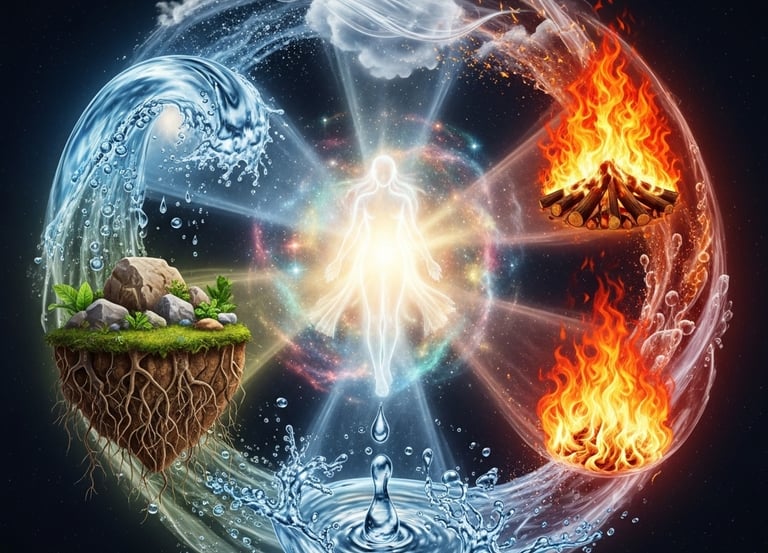Vaisheshika Philosophy of Materials
The Vaisheshika (or Vaiśeṣika) is one of the six orthodox schools of Hindu philosophy, founded by the sage Kanada (also known as Kashyapa). It is a darshana shastra (philosophical system) that focuses on metaphysics, ontology, and epistemology. This philosophy, also known as the Shad Darshanas, are six systems of thought that accept the authority of the Vedas. These schools are Nyaya, Vaisheshika, Samkhya, Yoga, Mimamsa, and Vedanta. They offer diverse perspectives on metaphysics, epistemology, ethics, and soteriology.


Vaisheshika
Deals with atomism and the nature of reality, emphasizing the material world.
Samkhya
Analyzes the nature of reality into two fundamental categories: Purusha (consciousness) and Prakriti (matter).
Nyaya
Focuses on logic and epistemology, developing a system of valid reasoning.
Yoga
Analyzes the nature of reality into two fundamental categories: Purusha (consciousness) and Prakriti (matter).
Primarily concerned with the interpretation of the Vedas, especially the ritualistic portions, and the nature of dharma.
Mimamsa


Vedanta
Explores the nature of ultimate reality (Brahman) and its relationship to the individual self (Atman), often through interpreting the Upanishads
Vaisheshika Philosophy
Vaisheshika emphasizes Realism and Atomism. It categorizes reality into six (or seven) Padarthas (categories):
Dravya (substance): Nine types, including earth, water, fire, air, ether, time, space, soul, and mind.
Guna (quality): Attributes like color, taste, smell, etc.
Karma (action): Movement or activity.
Samanya (universality): Common properties of substances.
Vishesha (particularity): Unique characteristics distinguishing one entity from another.
Samavaya (inherence): The relationship between a substance and its qualities.
Abhava (non-existence): Sometimes added as a seventh category..
Atomism (Paramāṇuvāda):It refers to the ancient Indian philosophical concept of atomism, primarily associated with the Vaiśeṣika school of Hindu philosophy, though also present in Jainism and Buddhism to varying degrees. It posits that the material universe is composed of indivisible, eternal, and minute particles called paramāṇu (atoms), which are the fundamental building blocks of matter.· These atoms combine in different ways to form all matter
Ayurveda
"Mardanam Guna Vardhanam" is a Sanskrit phrase meaning the more mardana (grinding) is done the more guna (property) will imbibe in the drug. In Ayurveda, it signifies that the process of grinding or trituration (maceration) of a substance, particularly herbs or minerals, increases its therapeutic qualities. This is because grinding reduces particle size, thereby increasing the surface area exposed for interaction and absorption


